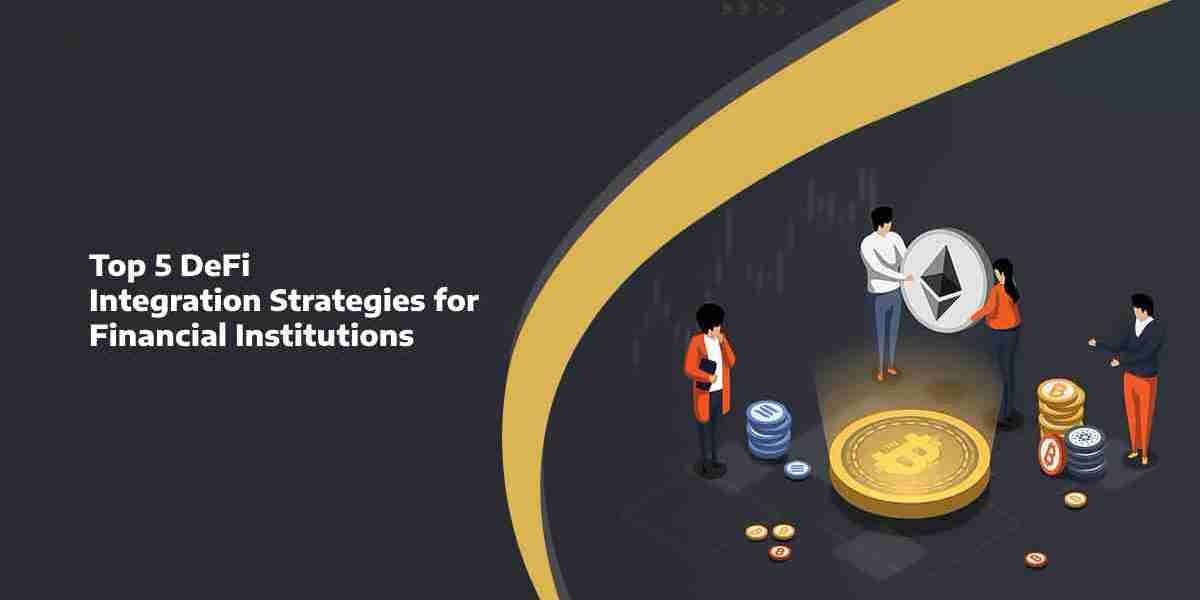Decentralized Finance (DeFi) has been revolutionizing the financial landscape by providing innovative solutions built on blockchain technology. While initially seen as a disruptive force, DeFi is increasingly being recognized as an opportunity for traditional financial institutions to enhance their operations and offer new services to their clients.
In this blog post, we'll explore five ways financial institutions can implement DeFi solutions to improve efficiency, reduce costs, and tap into new markets.
1. Automated Loan Origination and Management:
Financial institutions can leverage DeFi protocols to streamline the loan origination process. By using smart contracts, they can automate various stages of loan issuance, including identity verification, credit scoring, and collateral management. This not only reduces the time and resources required for processing loans but also minimizes the risk of fraud and default.
Leading DeFi development solutions providers offer customizable smart contract templates and oracles that financial institutions can integrate into their existing systems. These solutions ensure compliance with regulatory requirements while enabling seamless interaction with decentralized lending platforms.
2. Cross-Border Payments and Remittances:
Traditional cross-border payment systems are typically sluggish, costly, and susceptible to errors. However, DeFi solutions offer financial institutions the opportunity to provide faster and more economical payment services through blockchain technology. Smart contracts enable instant settlement, cutting out intermediaries and lowering transaction fees.
By partnering with a leading DeFi development solutions provider, financial institutions can access interoperable blockchain networks and liquidity pools, allowing for seamless cross-border transactions. This opens up new revenue streams and enhances the institution's competitiveness in the global payments market.
3. Tokenization of Assets:
Asset tokenization transforms real-world assets like real estate, stocks, or commodities into digital tokens on a blockchain. By leveraging DeFi platforms, financial institutions can tokenize assets, making them more divisible, liquid, and accessible to a wider range of investors.
Leading DeFi development solutions providers offer tokenization platforms that comply with regulatory standards and provide secure custody solutions. This enables financial institutions to create and manage tokenized assets efficiently, opening up opportunities for fractional ownership, increased liquidity, and new investment products.
4. Decentralized Trading and Asset Management:
DeFi protocols enable decentralized trading of digital assets, allowing users to trade without relying on traditional exchanges. Financial institutions can integrate decentralized exchanges (DEXs) into their platforms to offer clients access to a broader range of assets and trading opportunities.
By partnering with a leading DeFi development solutions provider, financial institutions can ensure compliance with regulatory requirements and access advanced trading features such as automated market making and liquidity aggregation. This enhances the institution's ability to serve sophisticated traders and investors while reducing counterparty risk.
5. Enhanced Yield Generation:
Financial institutions can leverage DeFi protocols to optimize yield generation on idle assets. Institutions can earn competitive yields on their holdings by participating in decentralized lending, liquidity provision, or staking protocols while maintaining control over their funds.
Leading DeFi development solutions providers offer integration with yield optimization strategies and risk management tools, allowing financial institutions to maximize returns while mitigating potential risks. This enables institutions to offer innovative savings and investment products to their clients, attracting new customers and increasing loyalty.
Conclusion:
Incorporating DeFi solutions into their operations presents financial institutions with exciting opportunities to innovate, improve efficiency, and stay competitive in a rapidly evolving landscape. By partnering with a leading DeFi development solutions provider , institutions can access cutting-edge technology, regulatory compliance, and strategic support to successfully implement DeFi solutions and unlock new value for their clients and stakeholders.



